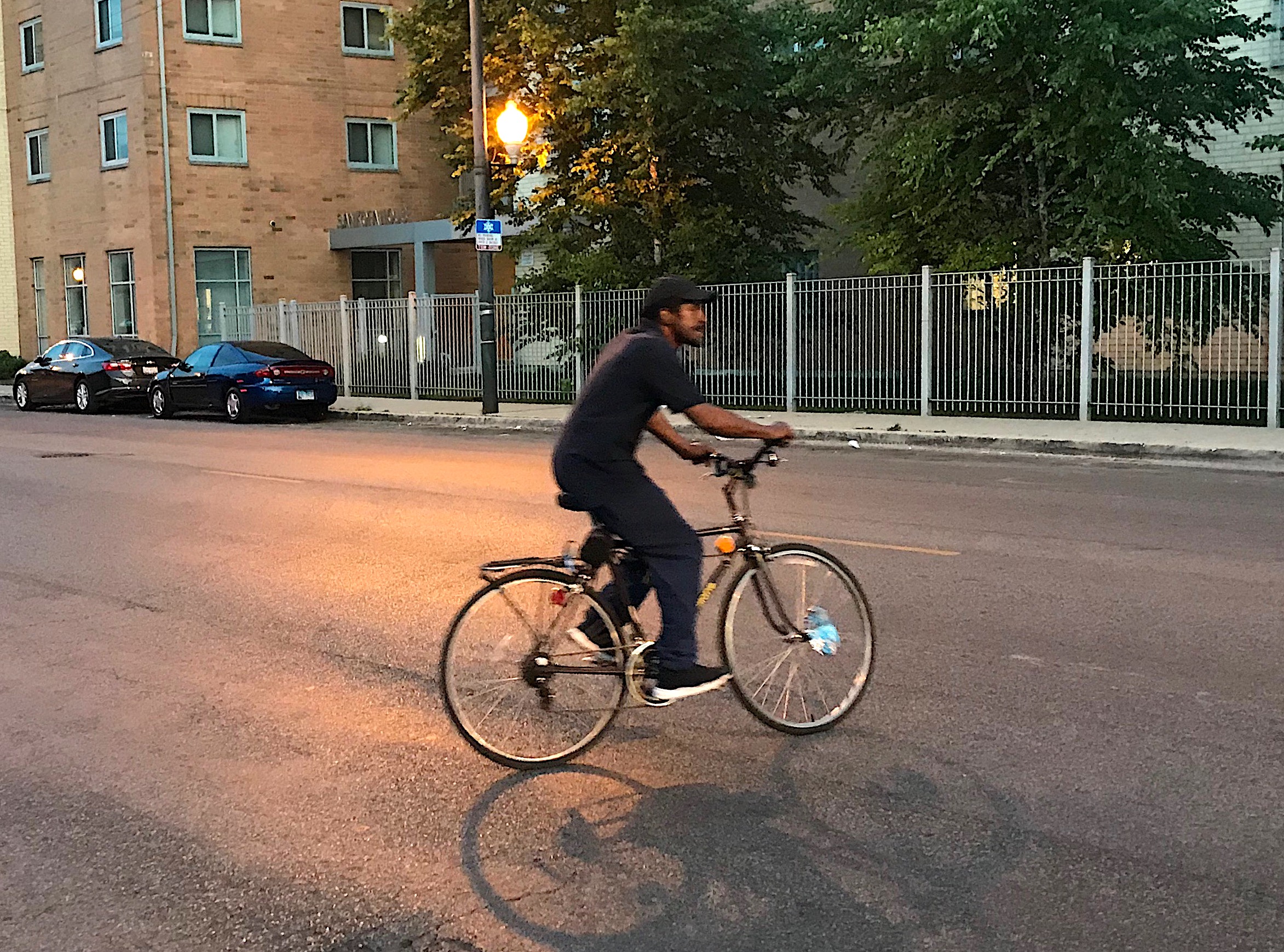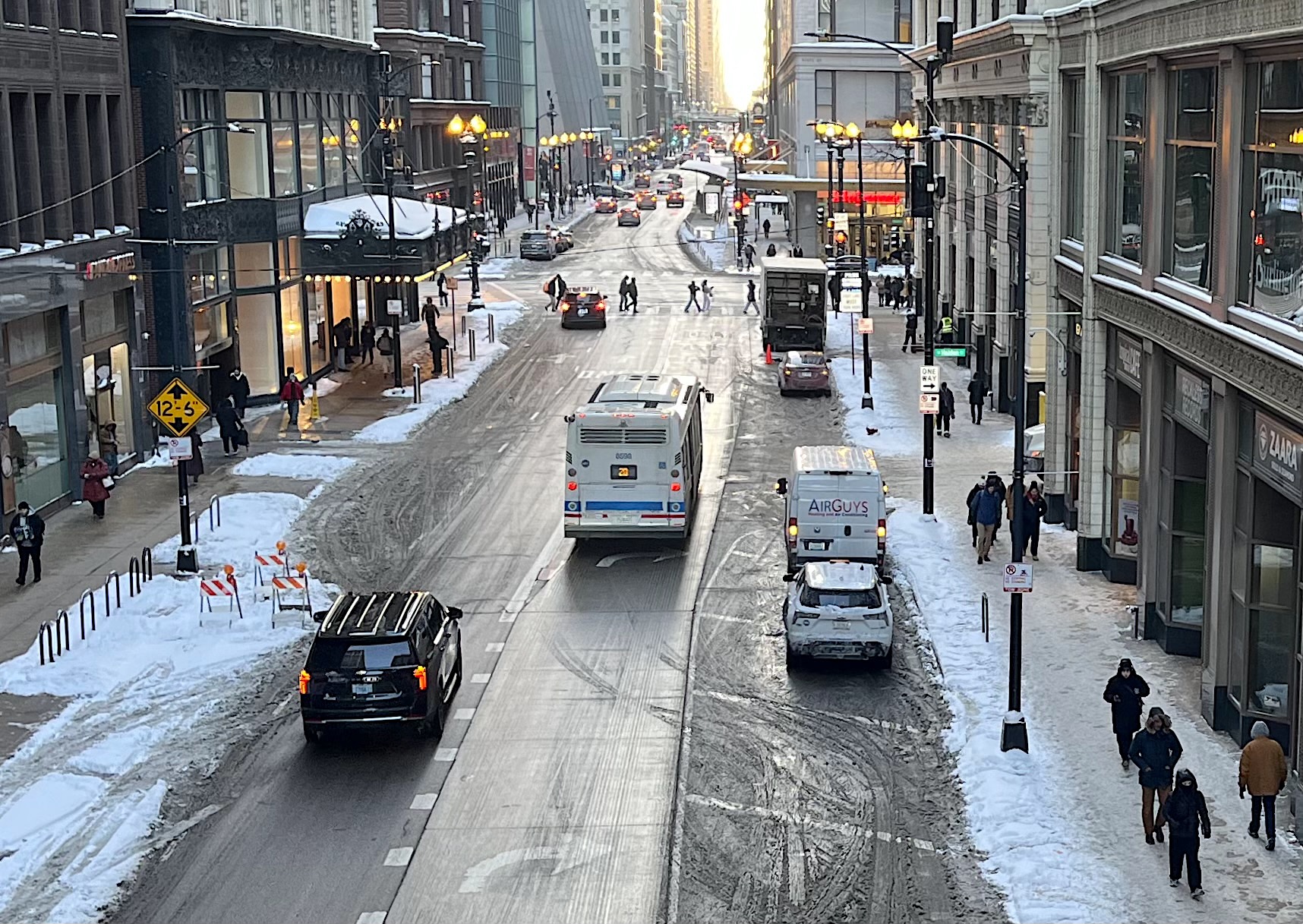Earlier this month criminal justice reform advocates, cycling activists, and North Lawndale residents slammed the Chicago Police Department’s practice of writing exponentially higher numbers of bike tickets in some communities of color compared to majority-white neighborhoods as a strategy to conduct searches.
At the June Mayor’s Bicycle Advisory Council meeting, police representative Glenn Brooks Jr. acknowledged that the higher rates of ticketing in some Black and/or Latino areas are the result of bike and motor vehicle enforcement being used as a violence-prevention tactic. He said that a CPD analysis of 3,300-plus sidewalk riding tickets indicated that the traffic stops are being used to facilitate searches for illegal guns and drugs. Brooks added that he doesn’t feel the tactic represents racial profiling because the demographics of those ticketed reflect the neighborhoods, and he indicated that the CPD doesn’t plan to stop the practice.
Today Karen Sheley, director of ACLU of Illinois’ police practices project, said she strongly disagrees with Brooks’ assessment. “This type of policing, using stops for minor violations as a means to try and identify more serious violations, has been going on for decades, and it’s the primary driver for racial profiling,” she said. “This decision to make it more costly to ride a bike in the neighborhoods that can least afford it is worrisome.”
Brooks told MBAC attendees that about ten percent of the traffic stops studied resulted in charges for more serious crimes, but Sheley says the department's bike ticketing strategy is counterproductive for reducing violence. “When people feel like they’re being targeted in their neighborhoods, it leaves a negative impression of the police,” she said. “And when you’re law-abiding, it’s really offensive to be stopped for minor ticky-tacky violations and basically be treated like a criminal.” She added that this makes citizens less likely trust the police and share information with them, which is a factor in Chicago’s low clearance rate for solving serious crimes such as murders.
Sheley noted that the 2017 U.S. Department of Justice investigation of the CPD outlined how this kind of “broken windows”-style enforcement of minor infractions has had an negative effect on community relations and crime solving. She added that social science researchers have reached similar conclusions.
The CPD’s de facto policy of rarely ticketing for bike violations in white neighborhood while frequently writing them in many Black and/or Latino communities may also be illegal, Sheley said. She noted that the Illinois Civil Rights Act of 2003 made it unlawful to have a policy with disparate impacts on the basis of race.
What if the police leveled the playing field by writing more bike tickets in majority-white areas? That way Lincoln Park, where five citations were issued in 2017, according to a report by the Tribune’s Mary Wisniewski, might see as many tickets as North Lawndale, where 397 tickets were written that year.
“What you see is that when white people face the same burdens as Black people, policies change,” Sheley responded, adding that she would be surprised if such heavy-handed bike enforcement would last long in Lincoln Park. She also noted that it would be a questionable use of limited police resources to write hundreds of tickets a year for minor bike violations in low-crime neighborhoods, just as it is in high-crime ones.
In 2015 ACLU of Illinois reached an agreement with the CPD requiring increased documentation of “stop-and-frisk” investigatory police stops and body searches. Sheley said her organization would need to get more specifics on the CPD’s bike ticketing practices to determine whether this issue is something they’d take on in conjunction with their work on stop-and-frisk.
“We’re going to continue to review the bike stops in the context of the stop-and-frisk agreement and we’ll be continuing to investigate this problem,” Sheley said. “We’ve heard complaints about this and we’ve been following the issue. We encourage people to talk to us about their experiences being stopped for a bike violation.” She added that, if staff time is available, the ACLU may send a representative to the next MBAC meeting to learn more about the subject.







